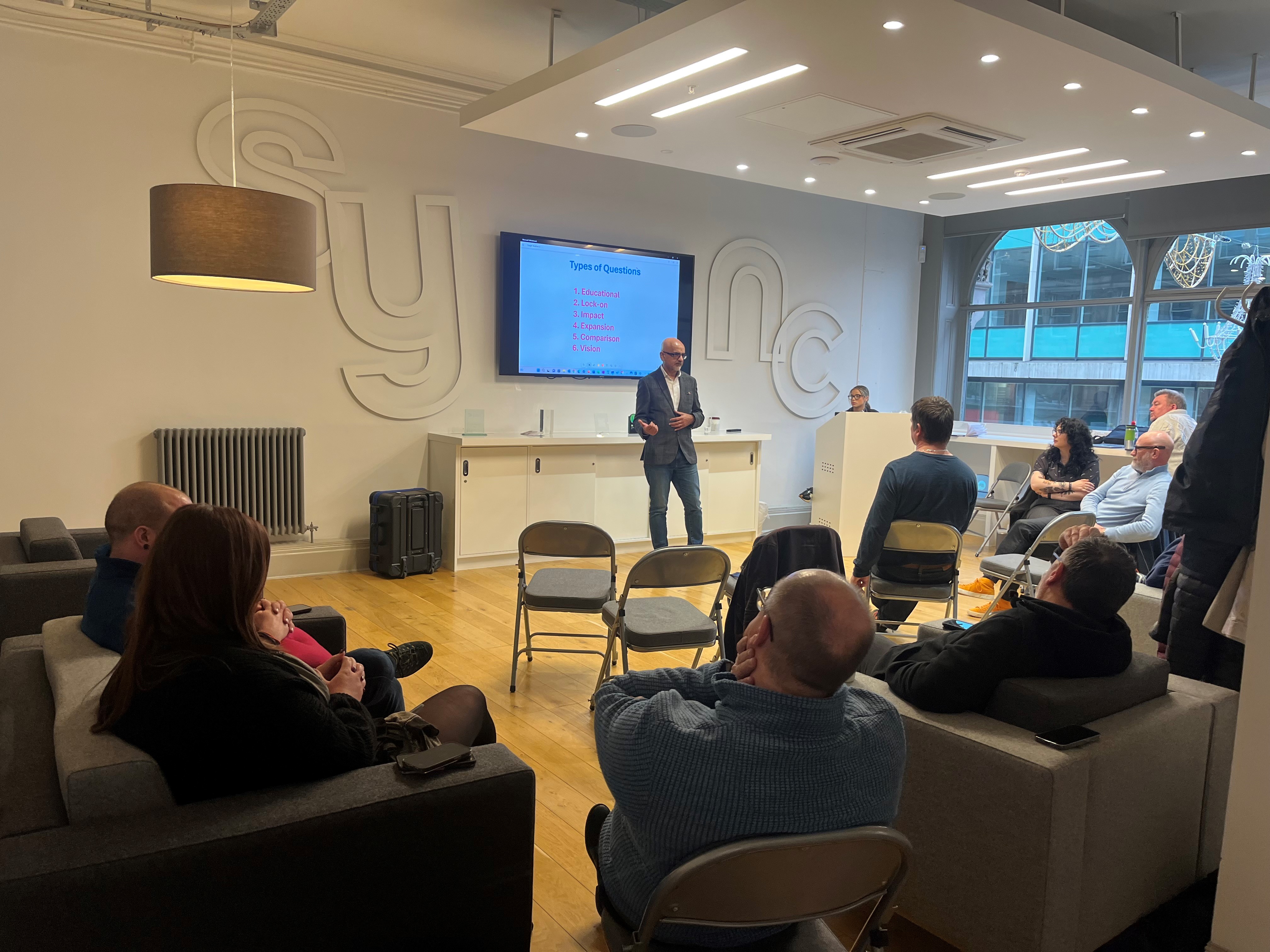Trade shows are a significant investment for companies, both in terms of time and money. Costs can quickly add up due to booth design, promotional materials, travel expenses, and staffing. However, despite the financial commitment trade shows are filled with potential customers, industry peers, and valuable networking opportunities. Your booth staff play a critical role in representing your brand, engaging attendees, and driving success at these events. According to industry statistics, 85% of your booth’s success is down to how your staff performs and their professionalism on the booth.
Upskilling your booth staff with key interpersonal communication skills and making them aware of your key performance indicators (KPIs) can make a significant difference in the effectiveness of your trade show and ensure all the time and money going into the trade show pays off.
In this blog post, we’ll explore why training your staff for trade shows is essential and talk you through the steps to ensuring your staff are well prepared for the trade show.
Why Training is Crucial
First impressions matter, especially in a competitive trade show environment. Your booth staff are often the first point of contact attendees have with your brand, making their interactions crucial to your success. A well-trained staff can effectively communicate your brand’s message, showcase your products or services, and create positive experiences for visitors.
A common mistake companies make is relying on their internal sales teams to be able to succeed in working at trade shows without any necessary training. Trade shows are unique and face different challenges to a typical sales environment. Ignoring the specialised training needs for trade shows can result in missed opportunities, low attendee engagement, and an overall lower return on investment for your trade show participation.
Key Training Areas
Product Knowledge: Ensure your staff has a deep understanding of your products or services. They should be able to answer questions, demonstrate product features, and highlight benefits to potential customers or point attendees in the right direction on who to speak to at the booth. Provide your staff with product manuals, FAQs, and hands-on training sessions to build their confidence before the show.
Brand Messaging: Consistency is key when it comes to your brand’s messaging. Train your staff on your brand’s mission, values, and key selling points to ensure they deliver a unified message to attendees. All your staff must have a clear understanding of what message you want to put out to attendees to effectively attract your target audience. Role-playing exercises can be useful in practicing and refining the delivery of your brand’s message.
Engagement Techniques: Teach your staff effective engagement techniques to attract and interact with attendees. This includes greeting visitors, asking the right questions to understand their needs, and actively listening to their responses to provide each attendee with the most suitable response. Attendees will have different communication styles so it is important that you teach your staff how to adapt to different styles of communication which can differ depending on factors such as personality, job roles, cultures… You can enhance your staff’s engagement skills by providing your staff with our in-depth engagement training session to equip your team with effective techniques for attracting and interacting with attendees and teach them how to adapt to different communication styles.
Follow-up Process: Training your staff for trade shows doesn’t just end once the show is over. Following up after a trade show is a critical step in converting leads into customers and building lasting relationships. It is essential to have a structured follow-up plan in place to capitalize on the momentum and interest generated during the show. By implementing a follow-up strategy, you can maximise the return on investment from your trade show participation, strengthen your connections with prospects, and drive sales and growth for your business. For a more in-depth look on how to effectively follow-up with attendees, take a look at our 4-step follow up process.
Training methods:
To effectively prepare staff for trade shows, utilise a variety of training methods tailored to their needs and learning styles. Interactive workshops offer hands-on practice opportunities for product demos, engagement techniques, and role-playing exercises, and confidence. Online training modules provide convenient access to consistent materials covering product knowledge, brand messaging, and trade show best practices. Look at CPD verified trade show training courses to ensure your staff receives high-quality and credible training materials. Additionally, throughout the training process, offer continuous feedback and coaching, encouraging open communication to address concerns and ensure staff feel supported and confident in their abilities.
Case Study
Read here about how our client Sync used our booth staff training course as part of their overall trade show strategy and achieved an uplift of 20% in sales leads generated from their shows.
Conclusion
Training your staff for trade shows is a critical step in ensuring your success at these events. By investing time and resources in preparing your staff, you can equip them with the knowledge, skills, and confidence to effectively represent your brand, engage attendees, and drive results.
Remember, the goal of training is to create brand representatives who are knowledgeable, engaging, and enthusiastic about your products or services. With proper training and support, your staff can make a lasting impression and contribute to the overall success of your trade show participation.

